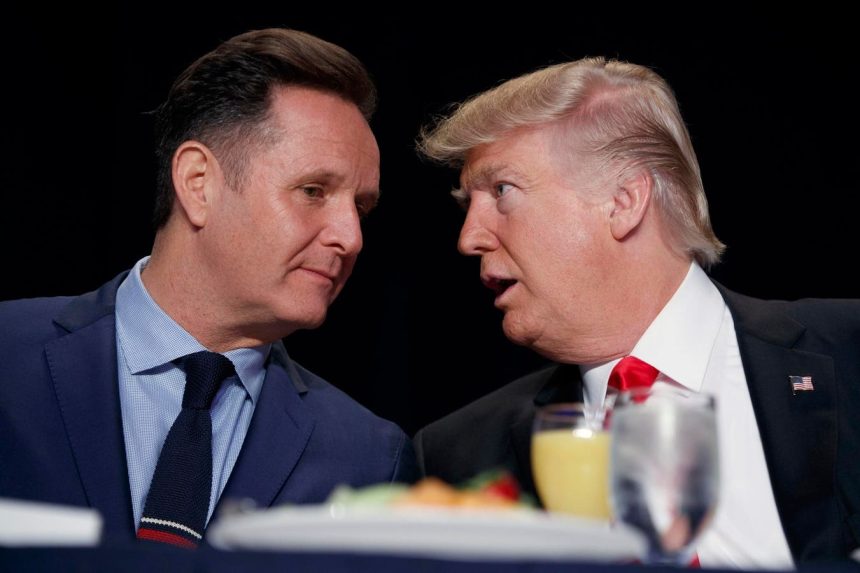President-elect Trump’s Cabinet Nominations: A Comprehensive Overview
Following his election victory, President-elect Donald Trump has embarked on a rapid succession of appointments to key positions within his administration. These nominations span a wide range of departments and agencies, reflecting Trump’s intent to reshape the federal government’s direction and priorities. The selections have generated both excitement and controversy, showcasing a blend of familiar faces from Trump’s previous term, new allies from various sectors, and some unexpected choices. From seasoned political figures to business leaders and media personalities, the emerging cabinet reflects Trump’s distinctive approach to governance.
Key Appointments and Strategic Directions
The list of nominees reveals several key thematic areas of focus for the incoming Trump administration. A central theme is a renewed emphasis on law and order, with appointments like Aaron Reitz to head the Justice Department’s Office of Legal Policy. This signals a potential return to the tough-on-crime rhetoric and policies that characterized Trump’s first term. Immigration policy also remains a prominent area, underscored by the nomination of Tom Homan as Border Czar. Homan’s previous role as ICE director suggests a continuation of strict enforcement measures. Furthermore, the appointment of former Border Patrol Chief Rodney Scott as CBP commissioner signals a commitment to border security and reinforces the administration’s focus on immigration control.
Economic policy and trade are other key areas of concern, with figures like Scott Bessent as Treasury Secretary and Peter Navarro as Senior Counselor for Trade and Manufacturing. Bessent’s selection indicates a potential focus on financial markets and international trade, while Navarro’s return suggests a continuation of the protectionist trade policies pursued during Trump’s previous administration. The establishment of a new Department of Government Efficiency, co-headed by Elon Musk and Vivek Ramaswamy, further emphasizes a focus on streamlining government operations and potentially reducing regulations. This move signals a commitment to fiscal responsibility and a desire to reduce the perceived burden of government bureaucracy.
Health policy has also garnered considerable attention, with the highly controversial nomination of Robert F. Kennedy Jr. to lead the Department of Health and Human Services. Kennedy’s well-known skepticism towards vaccines and conventional medical practices has raised concerns among public health experts and sparked a significant backlash. This appointment signals a potential shift in the government’s approach to public health, possibly towards more unconventional or alternative approaches. The selection of Dr. Jay Bhattacharya, a prominent lockdown critic, to head the National Institutes of Health further reinforces the administration’s focus on reassessing public health strategies and challenging established norms.
Navigating Political Relationships and Potential Conflicts
Trump’s appointments also reflect his focus on loyalty and personal connections. Several nominees, such as Susie Wiles as Chief of Staff and Karoline Leavitt as Press Secretary, have served in key campaign roles, demonstrating Trump’s tendency to reward loyal supporters with prominent positions. The inclusion of family members and close associates, such as Tiffany Trump’s father-in-law Massad Boulos and Jared Kushner’s father Charles Kushner, further underscores this pattern. However, these nominations have also raised concerns about potential conflicts of interest and the blurring of lines between family, business, and government.
Trump’s cabinet nominations have not been without their share of withdrawals and controversies. The withdrawal of Chad Chronister from consideration for DEA Administrator, following Trump’s own stated reservations, highlights the complexities of the selection process. The president-elect’s subsequent claim of removing Chronister for comments made to his “pastors and supporters” adds another layer to the narrative and raises questions about the criteria used in these decisions. Additionally, allegations against Pete Hegseth, nominee for Secretary of Defense, have further added to the controversies surrounding the transition. These incidents underscore the challenges of building a cabinet while navigating political and personal considerations.
A Blend of Experience and Disruption
The incoming Trump administration’s composition reveals a mixture of experienced officials, political newcomers, and unconventional choices. While some nominees have prior government experience, others come from backgrounds in business, entertainment, or advocacy. This mix suggests a potential for both continuity and disruption in various policy areas. The selections of figures like Mark Burnett, producer of "The Apprentice," and Herschel Walker, former football star, for ambassadorial roles, reflect Trump’s penchant for drawing from outside the traditional political sphere. These appointments, while unconventional, may signal a desire to bring fresh perspectives and non-traditional approaches to diplomacy and international relations.
Looking Ahead: Challenges and Opportunities
As President-elect Trump finalizes his cabinet and prepares to take office, several challenges and opportunities lie ahead. The Senate confirmation process will be a key hurdle for many nominees, especially those with controversial backgrounds or policy positions. Building consensus and navigating potential opposition will be crucial for the incoming administration. Furthermore, the task of implementing the president-elect’s ambitious agenda will require effective coordination and management within the executive branch. The blend of personalities and experiences within the cabinet will present both opportunities for innovation and potential sources of tension. The next chapter of the Trump presidency will undoubtedly be marked by significant policy shifts, political maneuvering, and ongoing public scrutiny.



